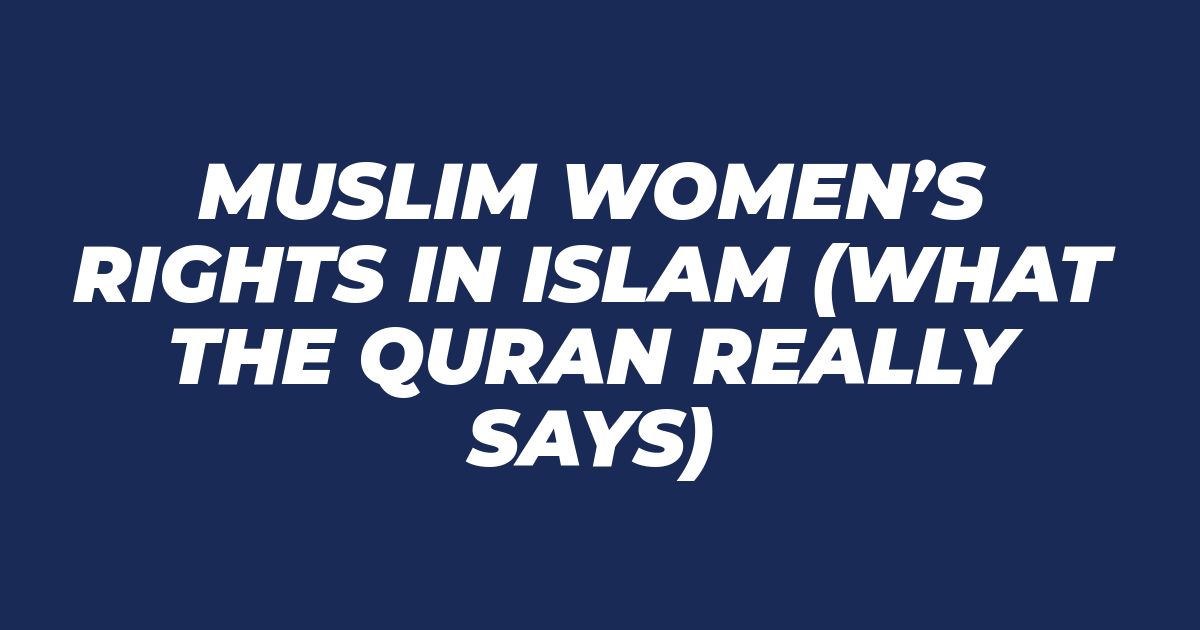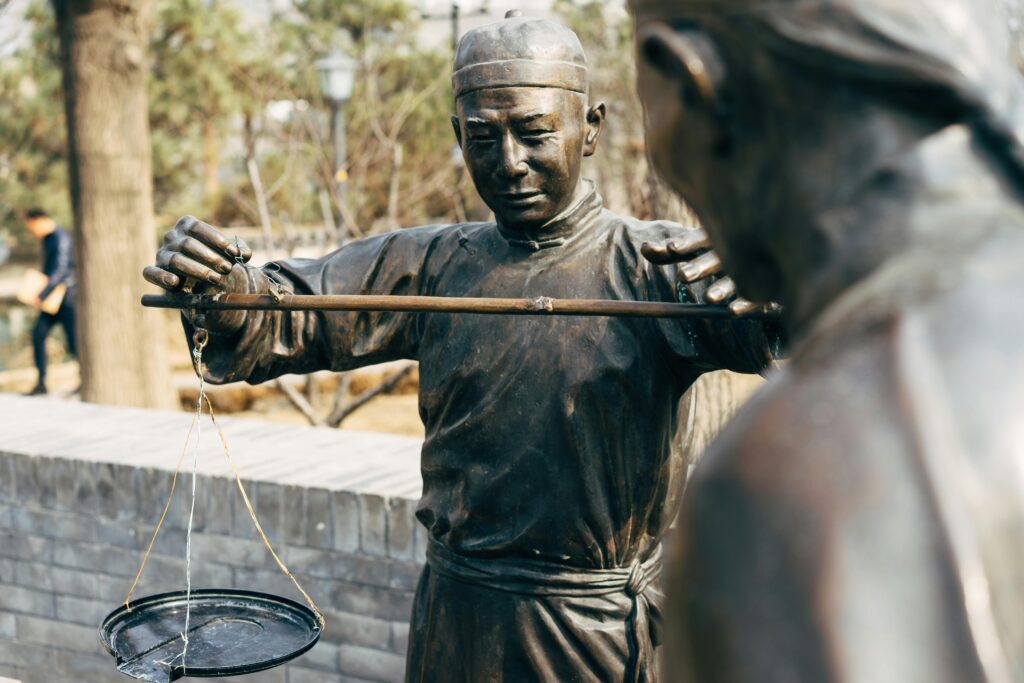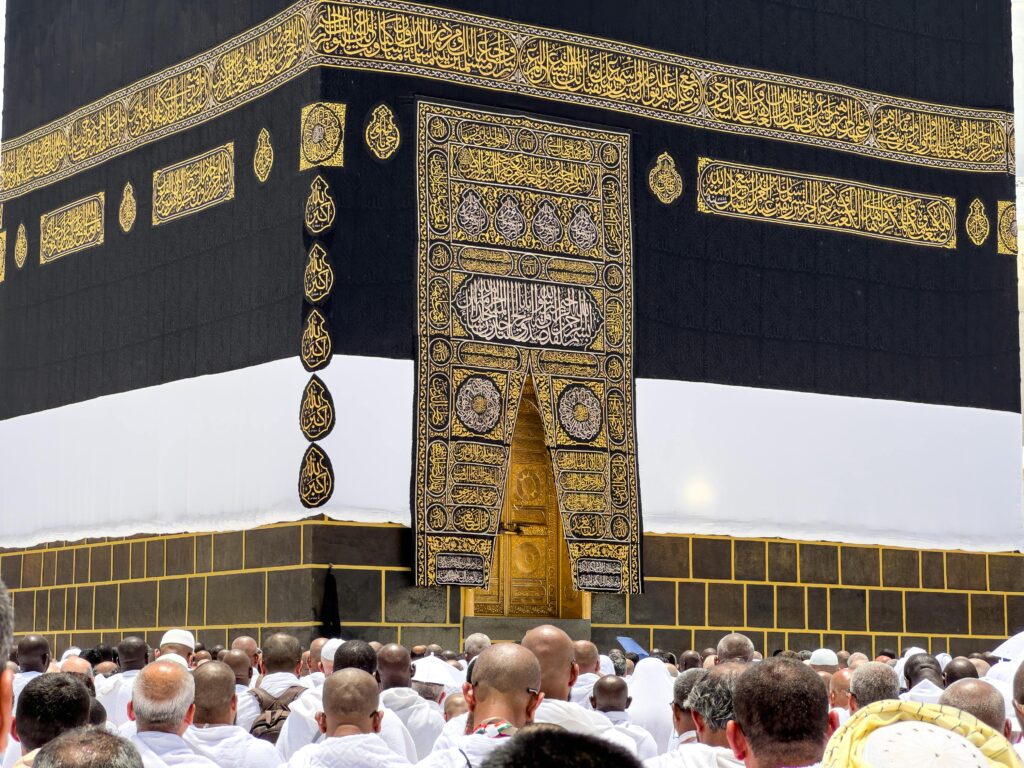Muslim Women’s Rights in Islam (What the Quran Really Says)
Many people hear stories about Muslim women’s rights, but the facts often get lost in translation. There’s a lot of confusion about what the Quran teaches compared to myths and opinions found online or in the news.
This post looks at real Quranic verses and history to set the record straight and clear up common misunderstandings. You’ll get a straightforward, honest look at what Muslim women’s rights mean in Islam. By the end, you’ll have a balanced picture that’s backed by faith, context, and facts.
Watch a related video on this topic
Quranic Foundations of Gender Equality
When we look at the Quran itself, the building blocks for Muslim women’s rights are laid out from the very beginning. These aren’t scattered rules or one-off verses—they’re principles that run through the text and shape every discussion about men, women, and equality in the Islamic faith. Below, we break down key passages that reveal what the Quran really says about gender, worship, and dignity.
Creation Narrative: One Soul, Two Genders
The Quran starts its conversation about gender with a powerful origin story. In Surah An-Nisa 4:1, it says:
“O humanity! Be mindful of your Lord Who created you from a single soul, and from it He created its mate, and through both He spread countless men and women…”
This verse, found in Surah An-Nisa 4:1, puts men and women on equal footing from the very start. Both are made from the same soul. There’s no hint of hierarchy or preference here. Being made from the same source means sharing the same dignity, value, and rights in the eyes of God. This shared origin sets the tone for everything—the Quran does not treat women as a separate or lesser creation.
Spiritual Equality in Worship and Afterlife
Gender has no bearing on someone’s spiritual worth or their path to God. In fact, the Quran plugs spiritual equality over and over:
- Surah 33:35 lists believing men and women side by side, with equal rewards and forgiveness promised to both.
- Surah 9:71 describes men and women as “allies” of each other in doing good, enjoining right, and believing in God.
The Quran’s wording is clear: both are called to faith and action. Both men and women are held responsible for their choices. Both are promised the same reward for good deeds and the same consequences if they stray. God is not counting gender when judging faithfulness or acts of worship. This is a message that runs throughout the Quran and is reinforced in verses like Surah 33:35.
Key Verses Defining Women’s Status
Several other verses make women’s rights and responsibilities explicit. Here are some that stand out:
- Surah 4:124: “And whoever does good deeds, male or female, and is a believer, will enter Paradise and will not be wronged, (even as much as) the speck on a date stone.”
- Surah 2:228: “And women have rights similar to those (of men) over them in kindness…”
A simple table highlights a few foundational verses:
| Quran Verse | Core Message |
|---|---|
| 4:1 | One soul, men and women share the same origin |
| 33:35 | Equal reward and forgiveness for men and women |
| 9:71 | Men and women are protectors/allies of one another |
| 4:124 | Both receive Paradise for belief and good deeds |
| 2:228 | Equal rights and duties in marriage |
These verses set a clear standard. They show the consistent pattern of equality that the Quran uses when it speaks about men and women. If you’re ever in doubt about Muslim women’s rights in Islam, these verses are a vital reference point.
Core Rights Granted to Women in the Quran
The Quran breaks down the rights of women into clear, practical laws that touch every stage of life. Far from being a side note, these rights sit at the heart of Islamic teachings, affecting daily life, family, and personal independence. Let’s take a closer look at four core rights that shape the lives of Muslim women: education, property ownership, financial independence, and marriage consent.
Right to Education and Knowledge

Photo by Zeynep Sude Emek
The first command in the Quran is to “Read!” found in Surah Al-‘Alaq (96:1-5). These verses urge all believers to seek knowledge and learning, regardless of gender. God does not limit this command to men, signaling that the pursuit of education is a religious duty for everyone. This theme is repeated throughout Islamic tradition, which values critical thinking and literacy. You can read the original verses here in Surah Al-‘Alaq 1-5.
History offers plenty of examples where women became leaders in scholarship. Aisha bint Abu Bakr, for instance, was a top expert in Islamic law and narrated over 2,000 Hadith (sayings of the Prophet). Women like Fatima al-Fihri, who founded the oldest operating university in Morocco, show this right carried into real action.
Key points:
- Education is a religious duty for men and women.
- Many influential female scholars shaped Islamic history.
- The command to seek knowledge creates equality at the very foundation of the faith.
Right to Own and Inherit Property
The Quran gives women the right to own, manage, and inherit property. In Surah An-Nisa (4:7-12), God lays out inheritance shares for sons and daughters. While the shares vary depending on family structure, each woman’s portion is guaranteed by divine law. What matters most is the principle: a woman’s allotment belongs to her alone.
This wasn’t a minor shift—when these verses were revealed, women in most societies were not allowed to own property at all. Verses like Surah An-Nisa 4:7-12 ensure that daughters, mothers, and wives are recognized as rightful heirs.
Here’s what this means in practical terms:
- A woman’s property is managed by her, not by her husband or male relatives.
- She can buy, sell, and invest as she chooses.
- No one else has a claim on her inherited assets unless she gives permission.
Inheritance rights table:
| Relationship | Quranic Reference | Right Provided |
|---|---|---|
| Daughter | 4:7-12 | Guaranteed share |
| Mother | 4:11 | Explicit portion |
| Wife | 4:12 | Personal inheritance |
Financial Independence and No Obligatory Support
The Quran provides clear boundaries around financial duties in a marriage. Surah An-Nisa (4:34) makes it the husband’s responsibility to support the family, not the wife’s. Similarly, Surah Al-Baqarah (2:233) explains that even if a woman is a mother, her financial support should come from the father.
This means:
- Women are never required to provide for their husband’s needs.
- The “mahr” (dowry) is a gift to the bride and cannot be taken back.
- Any property or income a woman earns remains hers, and she decides how or if she spends it.
This arrangement grants women total financial independence. Husbands cannot demand their wife’s earnings to run the household. If a woman chooses to contribute, it’s out of goodwill, not expectation.
Right to Marriage Consent and Dowry (Mahr)
Marriage in Islam is only valid with a woman’s clear consent. Surah An-Nisa (4:19) tells believers not to inherit women or force them into marriage. Her agreement must be given freely, without pressure. The same surah, along with 4:25, also establishes her right to a “mahr”—a mandatory gift from the groom that belongs to her alone.
You’ll notice this theme in the explanation of mahr and consent in Surah An-Nisa 4:19:
- A woman’s voice and choice define if a marriage is valid.
- The mahr remains her personal property, no matter what happens in the marriage.
- Families and communities must respect a woman’s right to refuse or choose her partner.
This rule puts control firmly in the hands of women—a feature not found in many older legal systems.
Takeaway: The Quran not only upholds marriage as a partnership, but it also builds protections that let women shape their destiny and stand independently within the family structure.
Marriage, Divorce, and Family Law in the Quran
The Quran isn’t silent about relationships or family law. It lays out the rules for marriage, divorce, and responsibility in ways that are direct and practical. These laws put women’s consent, well-being, and fair treatment at the center. By spotlighting what the Quran itself says, we get a clearer picture than secondhand stories or hearsay.
Consent and Contractual Marriage: Use 4:19 and 30:21 to show that a valid marriage requires the woman’s willing agreement.
Marriage in Islam is more than a public ceremony. It is a contract built on the willing partnership of both individuals. The Quran states in Surah An-Nisa 4:19, “O you who have believed, it is not lawful for you to inherit women against their will…” This direct command makes forced marriage a clear violation of Islamic law. No one can “inherit” or take a woman in marriage unless she says yes.
The importance of mutual agreement shows up again in Surah Ar-Rum 30:21: “And among His signs is that He created for you from yourselves mates that you may find tranquility in them, and He placed between you affection and mercy…” These verses stress peace, friendship, and respect within marriage.
- A valid Islamic marriage contract must include the woman’s full and free consent.
- Any marriage that skips or ignores her decision isn’t acceptable under Quranic law.
- This guidance challenges the myth that women are silent or powerless in choosing their partners.
You can see a detailed look at why consent is essential for an Islamic marriage at The Significance of Muslim Women’s Consent.
Khula and Talaq: Women’s Divorce Rights
The Quran gives both men and women the right to seek an end to marriage if it isn’t working out. Often, people think only men can initiate divorce (talaq) in Islam, but the Quran also gives women a way out.
- Khula is a process described in Surah Al-Baqarah 2:229. If a woman feels she cannot continue the marriage—because of harm, lack of harmony, or any reason affecting her well-being—she can seek divorce through khula. She may return her mahr (dowry) as part of the separation, showing her independence and respect for the contract.
- This isn’t a loophole or a rare exception. It is written law. The husband’s consent isn’t required for her to ask; her needs and voice matter.
This recognition of women’s right to divorce helps protect them from being locked in harmful or loveless marriages.
Maintenance (Nafaqah) and Fair Treatment
Islamic law is clear that husbands must provide for their wives both during the marriage and even after a divorce. Surah Al-Baqarah 2:241 states, “For divorced women is a provision according to what is acceptable—a duty upon the righteous.” This means:
- Financial support (nafaqah) is not just a suggestion but an obligation. A woman doesn’t lose her support just because the marriage ends.
- During the marriage, the husband covers the cost of living (food, home, clothing).
- If divorce happens and she’s left without support, he must help her transition.
This rule shields women from poverty or mistreatment if a man divorces them. For more on how maintenance works after divorce in Islam, Marriage in Islam gives an overview.
Polygamy Limits: Justice Condition
Yes, the Quran mentions that a man may have more than one wife, but it adds strict conditions. In Surah An-Nisa 4:3, men are allowed up to four wives only if they can treat them all equally and fairly: “But if you fear that you will not be just, then [marry only] one…”
- The standard for fairness is high: emotional, financial, and personal equality.
- Many scholars point out that this condition often makes true polygamy impossible in practice.
- Mistreatment, favoritism, or neglect break the contract.
Many contemporary Muslim communities debate this topic. Some argue the Quranic justice standard is so demanding that it acts like a limit, not encouragement. For a thoughtful breakdown of the rules about marriage, fairness, and relationships, check out Marriage Wisdom in the Holy Quran.
In each of these areas, the Quran sets clear boundaries to protect women. Consent, fair treatment, and the right to leave a broken relationship aren’t just footnotes—they are non-negotiable parts of Islamic family law.
Public Participation and Leadership in Early Islam
Many people think that women in early Islam only played roles behind closed doors. That couldn’t be further from the truth. The Quranic model of society brought women to the center stage, encouraging them to lead, learn, guide, and take part in public life. This included business, charity, scholarship, and decision-making. Let’s break down some of the real stories and verses that set the standard for public participation and leadership by Muslim women.
Prominent Female Figures: Khadija, Aisha, Fatimah
Muslim history starts with powerhouse women who lived out the Quranic rights with clarity and determination. Here’s a quick look at three of the most important:
- Khadija bint Khuwaylid: The Prophet Muhammad’s first wife, Khadija, was a respected businesswoman and the first person to accept Islam. She ran a successful trade caravan and used her influence and wealth to support the budding Muslim community. Her leadership in both business and faith proved that women could excel in public and private arenas.
- Aisha bint Abu Bakr: Renowned for her intelligence, Aisha became a leading scholar after the Prophet’s passing. She narrated more than two thousand hadiths (teachings) and gave legal decisions to the community. Her home was a center of learning where men and women alike came for answers.
- Fatimah bint Muhammad: The Prophet’s daughter, Fatimah, was known for her dedication to charity and her advocacy for justice. She played a key part in supporting early Muslim society, building a legacy of compassion and strength.
These women lived out the rights granted in the Quran: the right to work, teach, learn, own property, and lead. Their lives stand as proof that Islam, from its earliest days, expected women to play active public roles. Dive deeper into their contributions in this Women in Islam overview.
Women as Scholars and Judges
Women didn’t just participate—they led in knowledge and justice. One standout example is Umm al‑Darda. She was a respected jurist and teacher in Damascus, famous for her insight in Islamic law. Both men and women came to attend her classes, including judges and governors. Umm al‑Darda even sat as a judge herself, rare in any society at the time.
This was not unusual. Throughout early Islamic history, women served as hadith scholars, teachers, and experts in law. They issued religious rulings (fatwas), headed schools, and trained the next generation of leaders. Their work laid the foundation for much of today’s Islamic scholarship, as explored in The Role of Early Female Muslim Scholars.
Women scholars influenced public life by:
- Teaching men and women at leading mosques and study circles.
- Writing down legal opinions that set community standards.
- Training judges and religious scholars.
This wide participation shows that Islamic tradition valued wisdom and contribution over gender.
Quranic Encouragement for Public Engagement
The Quran opens up public participation for women with direct language. One of the clearest examples is Surah Al-Ahzab 33:35, which places men and women side by side as believers, doers of good, and builders of society. The verse reads:
“Indeed, the Muslim men and Muslim women, the believing men and believing women… the truthful men and truthful women, the patient men and patient women… the men who remember Allah and the women who remember Allah, for them Allah has prepared forgiveness and a great reward.”
This verse lists men and women together in all areas of faith and action. There is no gap between the genders when it comes to public deeds or community service. In fact, both are told to support social good—for the whole society. Another important verse, Surah At-Tawbah 9:71, says that men and women are “protectors of one another” and must “enjoin what is right and forbid what is wrong.”
For more depth on these verses and how they shaped female participation, check out this analysis of women’s public rights in Islam.
At a glance:
| Role Area | Quranic Reference | Rights Highlighted |
|---|---|---|
| Public Service | 33:35; 9:71 | Equal calls to public duty, virtue, social action |
| Education | 96:1-5 | Mandated pursuit of knowledge for all |
| Leadership | Life of Khadija, Aisha, Umm al-Darda | Real examples of women in leadership |
These examples and verses show that Islam’s earliest model did not sideline women. Instead, it amplified their voices and encouraged their leadership in every part of life.
Contemporary Debates and Misinterpretations
Modern debates about Muslim female rights in Islam often circle around a handful of controversial topics. It’s easy for outsiders to confuse cultural habits or outdated customs with the actual rules laid out in the Quran. To make sense of the confusion, let’s go straight to some of the biggest sources of misunderstanding: the interpretation of violence in verse 4:34, clashes between culture and scripture, and new feminist readings of sacred texts.
Common Misconceptions About Violence: Explain verse 4:34, the range of scholarly interpretations, and the Quranic prohibition of harm
Few verses in the Quran stir as many debates as Surah An-Nisa 4:34. Some translations of this verse led to accusations that the Quran permits violence against women. However, most scholars (both classical and modern) agree this is a misreading.
- The Arabic word “daraba” in the verse has dozens of meanings, from “to separate” to “to set an example.” In some translations, it’s been read as “lightly hit,” while others say it means “leave” or “walk away.”
- Early scholars like Ata’ ibn Abi Rabah taught that it was never physical harm, but a symbolic show of anger. Many modern scholars, especially those focusing on women’s rights, argue the context was to prevent violence, not allow it.
- The Prophet Muhammad’s own life shows he never struck a woman or encouraged abuse, and courts throughout Muslim history sided with women who suffered harm in marriage.
Importantly, harming your spouse is haram (strictly forbidden), according to respected jurists like Abdulkarim Zaydan. This interpretation is echoed by many scholarly reviews of Quran 4:34, which make clear that Islamic ethics oppose any form of abuse. The core Quranic principle is kindness, mercy, and protection within marriage, not violence.
For readers interested in deep-dives or scholarly critique, you can explore recent discussions and feminist reinterpretations in sources like this Journal of Feminist Studies in Religion article.
Cultural vs. Scriptural Practices: Give examples where local customs diverge from Quranic rights
Not everything practiced in Muslim-majority regions actually comes from the Quran. Many harmful acts stem from local tradition, not scripture.
Let’s look at two well-known examples:
- Honor killings: These tragic acts, where family members kill women for supposed “shame,” have no basis in Islamic law. The Quran never approves this violence. In fact, taking an innocent life is condemned (see Surah 5:32). Rights to life, dignity, and justice cannot be denied by “custom.”
- Forced marriage: The Quran is clear: marriage requires the woman’s full consent (Surah 4:19). Any union without her agreement is invalid in Islamic law. Forced marriage is a cultural leftover, not a religious rule. Local practices that allow this are in direct conflict with Quranic principles.
There are other practices—female genital mutilation, denial of education, withholding inheritance—that local traditions sometimes justify using the name of religion. But looking closely at the text shows a different story. The Quran grants rights, while culture sometimes strips them away.
Emerging Feminist Interpretations: Mention movements like Musawah and scholars re‑examining verses for gender equity
Today, new voices are bringing fresh eyes to the Quran’s message about gender. Movements like Musawah, a global network for justice and equality in Muslim families, are pushing for readings that put men and women on true equal footing.

Photo by Mikhail Nilov
These feminist scholars and organizations argue:
- Many verses about family life, marriage, and community were shaped by the conditions of their time—but the ethical core calls for fairness, justice, and dignity.
- Gender equity is not just possible within the faith, but central to its true teaching when read in light of the big picture.
- They highlight women’s stories, contextual history, language, and the Prophet’s example, to show that assumptions about male authority are often based on culture, not the Quran.
For a deeper look at these reinterpretations and on-the-ground campaigns, visit Musawah and reviews such as Towards a New Interpretation of Quran 4:34. Women activists, scholars, and community leaders are showing that the Quran can and should be read as a foundation for women’s full dignity and rights.
The debates will keep going, but one thing is clear: conversation, critical reading, and activism are putting the spotlight back on what the Quran actually says, not what culture or custom demands.
Conclusion
The Quran gives women clear spiritual equality and legal rights including education, ownership, financial security, and choice in marriage. It describes women as full partners in faith and community, not as secondary or passive figures.
Much of the confusion about Muslim women’s rights comes from mixing up local customs with what the Quran actually says. Looking directly at the scripture, we see a message of dignity, justice, and self-determination that holds up even today.
To truly understand Muslim female rights in Islam, read closely, ask questions, and check your sources. Honoring the original message means siding with fairness over tradition when the two conflict.
Thank you for reading—please share your thoughts or stories below. Real change starts with honest conversations and deeper study.




